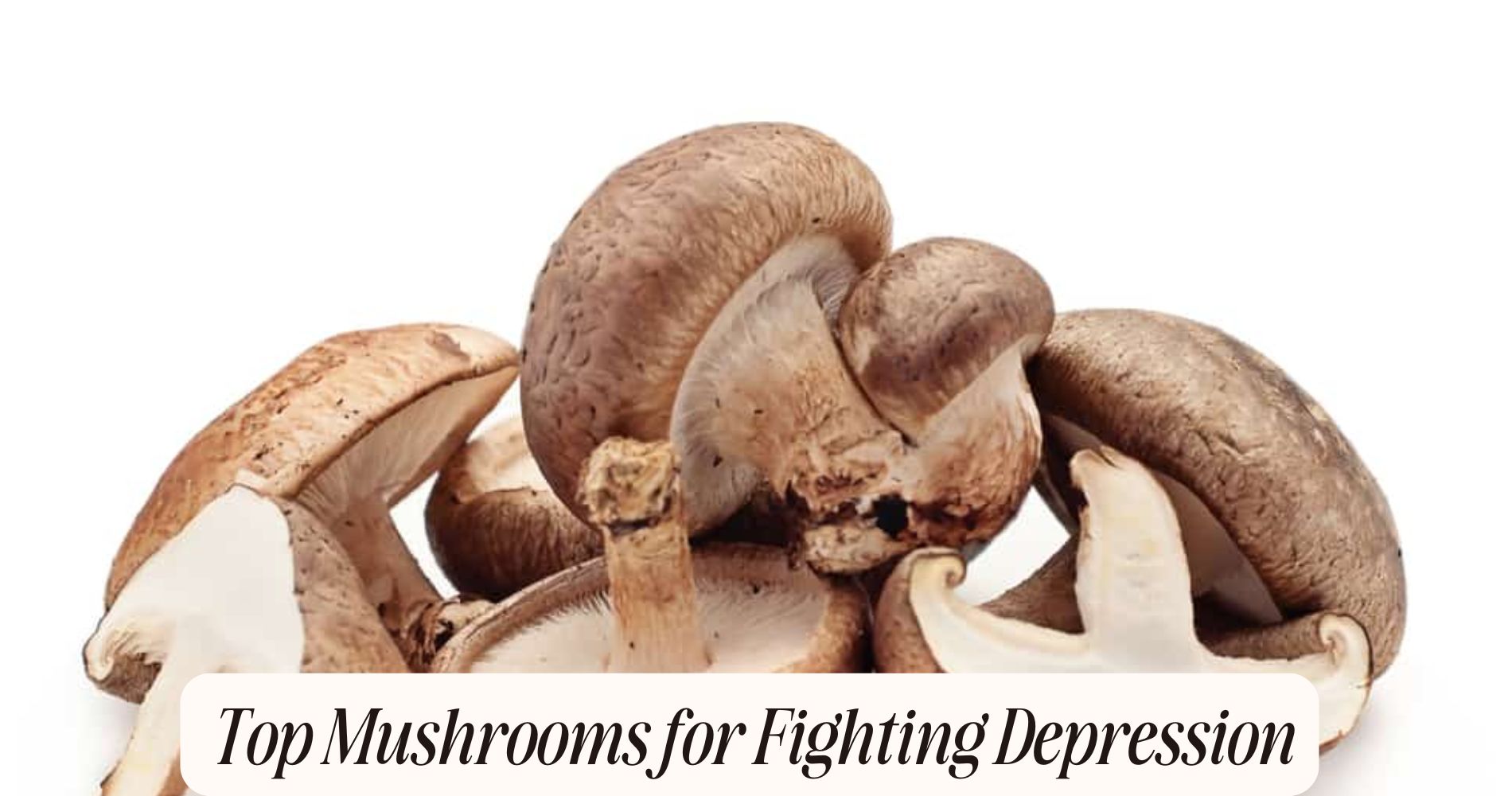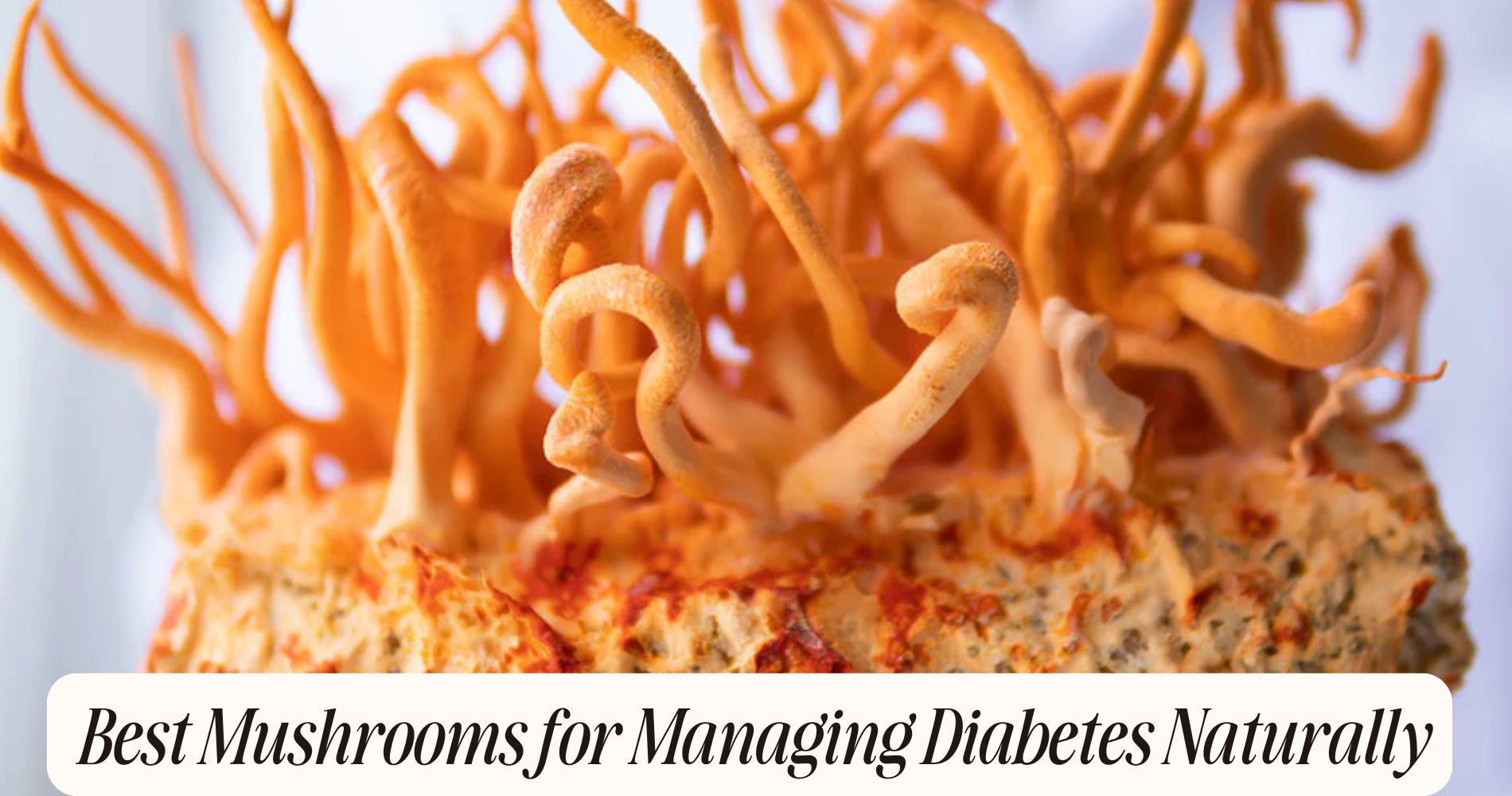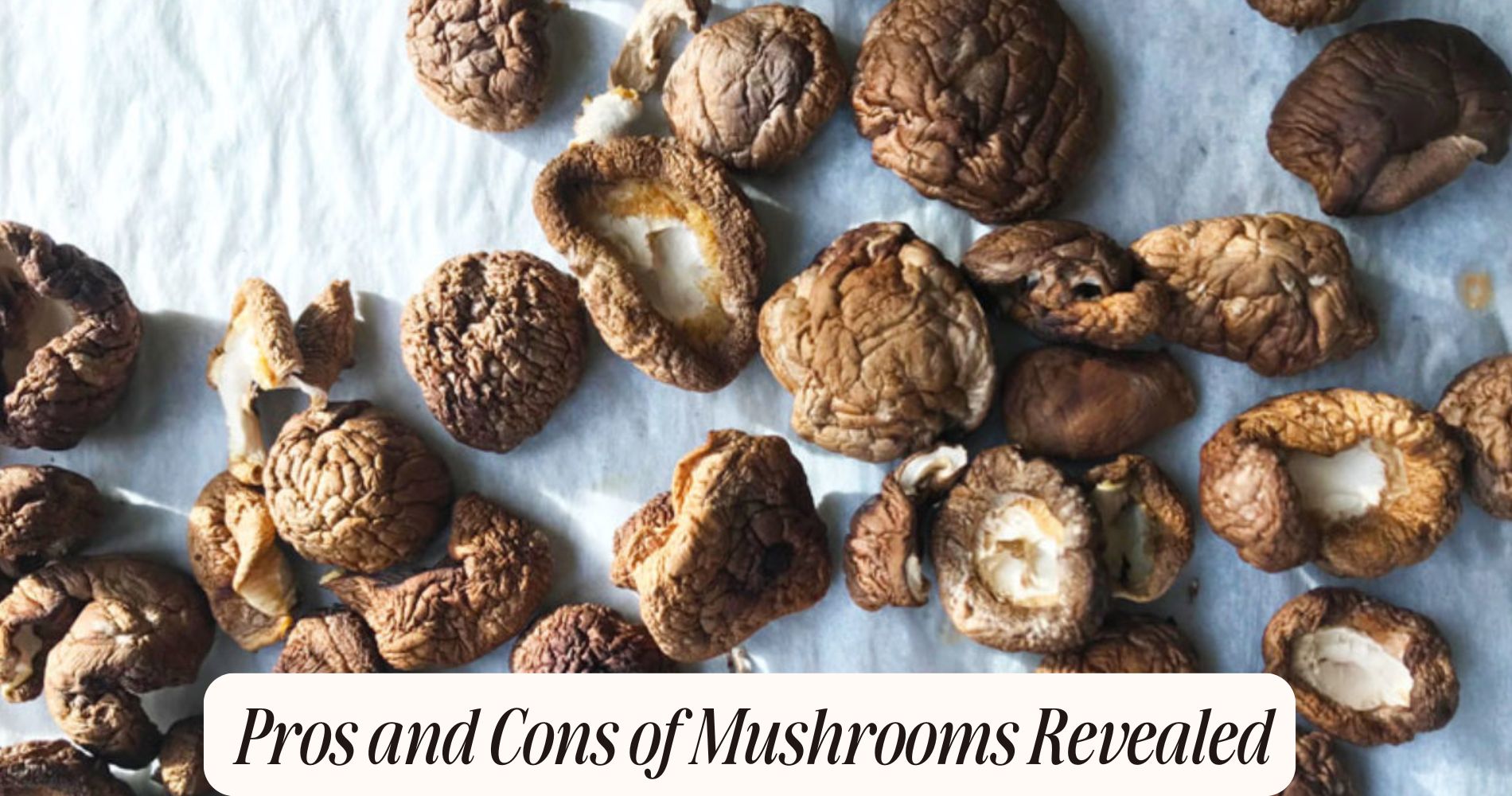
Top Mushrooms for Fighting Depression
Lion's Mane Mushroom
Lion's Mane mushroom, known scientifically as Hericium erinaceus, has gained attention for its potential mental health benefits, particularly in combating depression. Emerging lion's mane research suggests that this unique fungus might enhance cognitive function and emotional well-being.
You might find it interesting that lion's mane is rich in bioactive compounds, which could stimulate the production of nerve growth factor (NGF), essential for maintaining healthy neurons.

Studies have indicated that lion's mane benefits may extend to alleviating symptoms of anxiety and depression. In a 2010 study published in the journal "Biomedical Research," participants who consumed lion's mane extract reported reduced depression and anxiety levels compared to a placebo group.
These findings hint at the mushroom's potential to support emotional resilience.
While lion's mane isn't a substitute for professional treatment, incorporating it into your routine might provide supportive benefits. You can easily add lion's mane to your diet through supplements or culinary uses, such as soups and teas.
As lion's mane research continues to grow, keeping an eye on new findings could help you make informed decisions about incorporating this intriguing mushroom into your mental health toolkit.
Reishi Mushroom
Reishi mushroom, or Ganoderma lucidum, is another fascinating fungus that has been studied for its potential impact on mental health, particularly in relation to stress and mood regulation.
Research suggests that reishi may help modulate the body's stress response, which can contribute to improved emotional well-being. The reishi benefits include its adaptogenic properties, helping your body adapt to stress and potentially reducing anxiety levels.
When it comes to reishi preparation, you can find this mushroom in various forms, such as powders, capsules, or teas. If you choose to use reishi powder, you can easily add it to smoothies or soups, making it a versatile addition to your diet.
Traditionally, reishi tea is made by simmering the dried mushroom in water for an extended period, allowing its beneficial compounds to infuse into the liquid.
While reishi shows promise, it's important to approach its use thoughtfully. Consulting with a healthcare professional before incorporating it into your routine can guarantee it complements your overall mental health strategy effectively.
Chaga Mushroom
Have you ever considered how Chaga mushroom, or Inonotus obliquus, might influence your mental health? This unique fungus, often found on birch trees, has been gaining attention for its potential chaga mushroom benefits, particularly in managing stress and promoting emotional well-being.
Research indicates that Chaga is rich in antioxidants, which can help combat oxidative stress in the brain, a key factor in depression.
To incorporate Chaga into your routine, chaga mushroom preparation is straightforward. You can find Chaga in various forms, including powdered extracts, teas, or capsules. Brewing Chaga tea is a popular method; simply simmer chunks of the dried mushroom in water for several hours to extract its beneficial compounds.

This process allows you to enjoy its earthy flavor while reaping the potential mood-enhancing effects.
While scientific studies are still emerging, preliminary findings suggest that the adaptogenic properties of Chaga might help stabilize mood and reduce anxiety.
However, it's crucial to consult with a healthcare professional before adding any new supplements to your regimen, especially if you're already managing depression or anxiety.
With the right approach, Chaga could be a valuable addition to your mental wellness toolkit.
Cordyceps Mushroom
Cordyceps mushroom has gained attention for its potential health benefits, particularly in combating depression.
You'll find that its active compounds may play an essential role in enhancing mood and energy levels.
As you explore its usage and dosage recommendations, keep in mind the importance of combining it with a balanced approach to mental health.
Health Benefits Overview
One of the most intriguing mushrooms in the domain of mental health is Cordyceps, known for its unique bioactive compounds that may support mood regulation.
Research suggests that this mushroom might enhance emotional resilience, helping you better manage stress and anxiety. By potentially modulating neurotransmitter activity, Cordyceps could play a role in promoting mental wellness, offering a natural approach to improving your overall mood.
Incorporating Cordyceps into your diet could provide a range of additional health benefits, such as increased energy levels and enhanced physical performance. This can be particularly helpful for those dealing with fatigue associated with depression.
Its adaptogenic properties may also aid in stress management, further contributing to a sense of balance and well-being.
Although more research is needed to fully understand the mechanisms at play, the preliminary findings are promising.
As you explore natural options for supporting your mental health, consider adding Cordyceps to your regimen. By doing so, you may find it becomes a valuable ally in your journey toward emotional resilience and improved mental wellness, complementing other strategies you might be using.
Active Compounds Explained
Several active compounds in Cordyceps contribute to its potential mental health benefits. The most notable of these is cordycepin, a nucleoside that has shown promise in reducing anxiety and stress levels. Research suggests that cordycepin may help modulate neurotransmitter systems, particularly serotonin and dopamine, which play vital roles in mood regulation.
Another key compound is adenosine, which has been linked to improved cognitive function and mood enhancement. By promoting blood flow and oxygen delivery to the brain, adenosine may help reduce feelings of fatigue and lethargy often associated with depression.

Additionally, the polysaccharides found in Cordyceps possess antioxidant properties that combat oxidative stress. This is significant because oxidative stress is often linked to mood disorders, including depression. By targeting inflammation and promoting overall brain health, these compounds may support better mental well-being.
While Cordyceps shows potential in supporting mental health, it's important to approach its benefits with a balanced perspective. Ongoing research will help clarify how these active compounds can be effectively utilized in managing mental health conditions.
Usage and Dosage Recommendations
When considering Cordyceps for mental health benefits, understanding the proper usage and dosage is crucial for maximizing its potential. Cordyceps mushroom extracts are available in various forms, including capsules, powders, and tinctures. To reap the mental health benefits, you'll want to follow established dosage guidelines.
Research suggests that a daily intake of 1 to 3 grams of Cordyceps extract is generally effective for most adults. If you're new to Cordyceps, start on the lower end of this range and gradually increase your dosage, allowing your body to adjust.
It's also advisable to consult with a healthcare professional before starting any new supplement, especially if you're pregnant, nursing, or taking medications.
When choosing a product, look for high-quality mushroom extracts from reputable brands. Make sure they provide third-party testing results to guarantee purity and potency.
Shiitake Mushroom
Shiitake mushrooms offer a rich array of nutritional benefits, including high levels of B vitamins and essential minerals.
These nutrients can play a significant role in supporting your mood and overall mental health.
Research suggests that incorporating shiitake into your diet may help enhance your mood-boosting properties, making them a valuable addition to your meals.
Nutritional Benefits Overview
If you're looking to boost your mood through diet, shiitake mushrooms should be on your radar. These tasty fungi aren't just a culinary delight; they're packed with nutritional benefits that can support your overall well-being.
Shiitake mushrooms are a great source of B vitamins, particularly B2 (riboflavin) and B5 (pantothenic acid), which play essential roles in energy metabolism and brain function.
In addition to B vitamins, shiitake mushrooms contain important minerals like copper and selenium. Copper helps in iron absorption and supports cardiovascular health, while selenium acts as an antioxidant, protecting your cells from damage.
Among various mushroom varieties, shiitakes are also rich in polysaccharides, including lentinans, which may enhance immune function.
Including shiitake mushrooms in your diet can diversify your dietary sources of nutrients, making it easier to achieve a balanced intake of essential vitamins and minerals.
Incorporating these mushrooms into meals not only adds flavor but also contributes to your nutritional goals.
Mood-Boosting Properties
Packed with essential nutrients, shiitake mushrooms offer significant mood-boosting properties that can enhance your mental well-being. These mushrooms contain high levels of B vitamins, particularly B6 and B12, which play a vital role in neurotransmitter function. By supporting the production of serotonin, these vitamins can help regulate your mood and alleviate symptoms of depression.

Moreover, shiitake mushrooms are rich in antioxidants, which combat oxidative stress—an important factor in maintaining mental health. Regular consumption of this mushroom variety may improve cognitive function and emotional resilience.
Research indicates that incorporating shiitake mushrooms into your diet can lead to positive changes in your overall mood. Unlike some other mushroom varieties that may be popular for their psychoactive effects, shiitake mushrooms provide natural nutritional support without adverse side effects.
Additionally, their unique flavor makes them an enjoyable addition to various dishes, encouraging you to explore healthier eating habits. By embracing shiitake mushrooms, you may find a new ally in your pursuit of better mental health, contributing to a more balanced and joyful life.
Turkey Tail Mushroom
Turkey Tail mushroom, known scientifically as Trametes versicolor, boasts a rich history of use in traditional medicine, particularly for its potential to support mental health.
You'll find that turkey tail benefits extend beyond physical health; emerging turkey tail research suggests it may also play a role in alleviating symptoms of depression.
This mushroom is packed with polysaccharides, particularly polysaccharide-K (PSK), which some studies indicate may enhance immune function and reduce inflammation—factors that can impact mental well-being.

By promoting a healthy gut microbiome, turkey tail may also indirectly influence mood, as gut health is closely linked to mental health.
While the research on turkey tail and depression is still in its early stages, some clinical trials have shown promise.
For instance, individuals undergoing cancer treatment reported improved mood and quality of life when incorporating turkey tail supplements.
However, it's crucial to approach these findings with caution. Always consult with a healthcare professional before adding any new supplement to your regimen.
Boost Your Mood with SUPER MUSHROOM GUMMIES
Exploring the best mushrooms for depression? Well Gummies’ SUPER MUSHROOM GUMMIES offer a simple and effective way to harness the power of 10 functional mushrooms. These gummies promote calm energy, sharper focus, and immune support, helping you stay balanced and clear-minded. With a delicious wild berry flavor and no jitters or crash, they’re a tasty addition to your daily routine. Fuel your brain and uplift your mood naturally with these convenient, chewable gummies!
Frequently Asked Questions
Can Mushrooms Be Used Alongside Antidepressant Medications?
You can consider using mushroom varieties alongside antidepressant medications, but consult your healthcare provider first. They'll guide you on dosage guidelines to guarantee safety and effectiveness while monitoring potential interactions with your current treatment plan.
How Should Mushrooms Be Prepared for Optimal Benefits?
To optimize benefits, you should consider various preparation methods like tinctures or teas. Follow dosage recommendations carefully, starting low and gradually increasing, ensuring you monitor your body's response to achieve the best results.
Are There Any Side Effects of Consuming Medicinal Mushrooms?
Yes, consuming medicinal mushrooms can have side effects, particularly with improper dosage. It is crucial to follow dosage guidelines to minimize risks, as some varieties may pose mushroom toxicity if consumed in excessive amounts or without proper preparation.
Where Can I Buy High-Quality Medicinal Mushrooms?
You can buy high-quality medicinal mushrooms from reputable online retailers or local markets. Check for certifications and customer reviews to guarantee the products meet safety and quality standards before making a purchase.
How Long Does It Take to Feel the Effects of Mushrooms?
You'll typically feel the effects of mushrooms within 30 minutes to two hours, depending on the mushroom types and dosage guidelines. Individual responses vary, so it is crucial to start with lower doses to gauge your reaction.
Conclusion
Incorporating mushrooms like Lion's Mane, Reishi, Chaga, Cordyceps, Shiitake, and Turkey Tail into your diet could be a promising step towards managing depression. These fungi offer various bioactive compounds that may boost mood and cognitive function. While they aren't a substitute for professional treatment, they can complement a holistic approach to mental health. Always consult with a healthcare provider before making significant changes to your diet or treatment plan. Your well-being is worth the effort!




